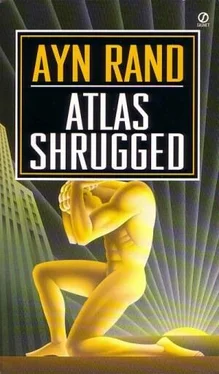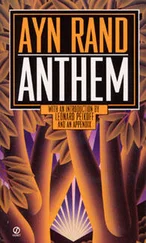"Man? What is man? He's just a collection of chemicals with delusions of grandeur," said Dr. Pritchett to a group of guests across the room.
Dr. Pritchett picked a canape off a crystal dish, held it speared between two straight fingers and deposited it whole into his mouth.
"Man's metaphysical pretensions," he said, "are preposterous. A miserable bit of protoplasm, full of ugly little concepts and mean little emotions—and it imagines itself important! Really, you know, that is the root of all the troubles in the world."
"But which concepts are not ugly or mean, Professor?" asked an earnest matron whose husband owned an automobile factory.
"None," said Dr. Pritchett, "None within the range of man's capacity."
A young man asked hesitantly, "But if we haven't any good concepts, how do we know that the ones we've got are ugly? I mean, by what standard?"
"There aren't any standards."
This silenced his audience.
"The philosophers of the past were superficial," Dr. Pritchett went on. "It remained for our century to redefine the purpose of philosophy.
The purpose of philosophy is not to help men find the meaning of life, but to prove to them that there isn't any."
An attractive young woman, whose father owned a coal mine, asked indignantly, "Who can tell us that?"
"I am trying to," said Dr. Pritchett. For the last three years, he had been head of the Department of Philosophy at the Patrick Henry University.
Lillian Rearden approached, her jewels glittering under the lights.
The expression on her face was held to the soft hint of a smile, set and faintly suggested, like the waves of her hair.
"It is this insistence of man upon meaning that makes him so difficult," said Dr. Pritchett. "Once he realizes that he is of no importance whatever in the vast scheme of the universe, that no possible significance can be attached to his activities, that it does not matter whether he lives or dies, he will become much more . . . tractable."
He shrugged and reached for another canape", A businessman said uneasily, "What I asked you about, Professor, was what you thought about the Equalization of Opportunity Bill."
"Oh, that?" said Dr. Pritchett. "But I believe I made it clear that I am in favor of it, because I am in favor of a free economy. A free economy cannot exist without competition. Therefore, men must be forced to compete. Therefore, we must control men in order to force them to be free."
"But, look . . . isn't that sort of a contradiction?"
"Not in the higher philosophical sense. You must learn to see beyond the static definitions of old-fashioned thinking. Nothing is static in the universe. Everything is fluid."
"But it stands to reason that if—"
"Reason, my dear fellow, is the most naive of all superstitions. That, at least, has been generally conceded in our age,"
"But I don't quite understand how we can—"
"You suffer from the popular delusion of believing that things can be understood. You do not grasp the fact that the universe is a solid contradiction."
"A contradiction of what?" asked the matron.
"Of itself."
"How . . . how's that?"
"My dear madam, the duty of thinkers is not to explain, but to demonstrate that nothing can be explained."
"Yes, of course . . . only . , ,"
"The purpose of philosophy is not to seek knowledge, but to prove that knowledge is impossible to man."
"But when we prove it," asked the young woman, "what's going to be left?"
"Instinct," said Dr. Pritchett reverently.
At the other end of the room, a group was listening to Balph Eubank. He sat upright on the edge of an armchair, in order to counteract the appearance of his face and figure, which had a tendency to spread if relaxed.
"The literature of the past," said Balph Eubank, "was a shallow fraud. It whitewashed life in order to please the money tycoons whom it served. Morality, free will, achievement, happy endings, and man as some sort of heroic being—all that stuff is laughable to us. Our age has given depth to literature for the first time, by exposing the real essence of life,"
A very young girl in a white evening gown asked timidly, "What is the real essence of life, Mr. Eubank?"
"Suffering," said Balph Eubank. "Defeat and suffering."
"But . . . but why? People are happy . . . sometimes . . . aren't they?"
"That is a delusion of those whose emotions are superficial."
The girl blushed. A wealthy woman who had inherited an oil refinery, asked guiltily, "What should we do to raise the people's literary taste, Mr. Eubank?"
"That is a great social problem," said Balph Eubank. He was described as the literary leader of the age, but had never written a book that sold more than three thousand copies. "Personally, I believe that an Equalization of Opportunity Bill applying to literature would be the solution."
"Oh, do you approve of that Bill for industry? I'm not sure I know what to think of it."
"Certainly, I approve of it. Our culture has sunk into a bog of materialism. Men have lost all spiritual values in their pursuit of material production and technological trickery. They're too comfortable. They will return to a nobler life if we teach them to bear privations. So we ought to place a limit upon their material greed."
"I hadn't thought of it that way," said the woman apologetically.
"But how are you going to work an Equalization of Opportunity Bill for literature, Ralph?" asked Mort Liddy. "That's a new one on me."
"My name is Balph," said Eubank angrily. "And it's a new one on you because it's my own idea."
"Okay, okay, I'm not quarreling, am I? I'm just asking." Mort Liddy smiled. He spent most of his time smiling nervously. He was a composer who wrote old-fashioned scores for motion pictures, and modern symphonies for sparse audiences.
"It would work very simply," said Balph Eubank. "There should be a law limiting the sale of any book to ten thousand copies. This would throw the literary market open to new talent, fresh ideas and non-commercial writing. If people were forbidden to buy a million copies of the same piece of trash, they would be forced to buy better books."
"You've got something there," said Mort Liddy. "But wouldn't it be kinda tough on the writers' bank accounts?"
"So much the better. Only those whose motive is not money-making should be allowed to write."
"But, Mr. Eubank," asked the young girl in the white dress, "what if more than ten thousand people want to buy a certain book?"
"Ten thousand readers is enough for any book."
"That's not what I mean. I mean, what if they want it?"
"That is irrelevant."
"But if a book has a good story which—"
"Plot is a primitive vulgarity in literature," said Balph Eubank contemptuously.
Dr. Pritchett, on his way across the room to the bar, stopped to say, "Quite so. Just as logic is a primitive vulgarity in philosophy."
"Just as melody is a primitive vulgarity in music," said Mort Liddy.
"What's all this noise?” asked Lillian Rearden, glittering to a stop beside them.
"Lillian, my angel," Balph Eubank drawled, "did I tell you that I'm dedicating my new novel to you?"
"Why. thank you, darling."
"What is the name of your new novel?" asked the wealthy woman.
"The Heart Is a Milkman."
"What is it about?"
"Frustration."
"But, Mr. Eubank," asked the young girl in the white dress, blushing desperately, "if everything is frustration, what is there to live for?"
"Brother-love," said Balph Eubank grimly.
Bertram Scudder stood slouched against the bar. His long, thin face looked as if it had shrunk inward, with the exception of his mouth and eyeballs, which were left to protrude as three soft globes. He was the editor of a magazine called The Future and he had written an article on Hank Rearden, entitled "The Octopus."
Читать дальше










